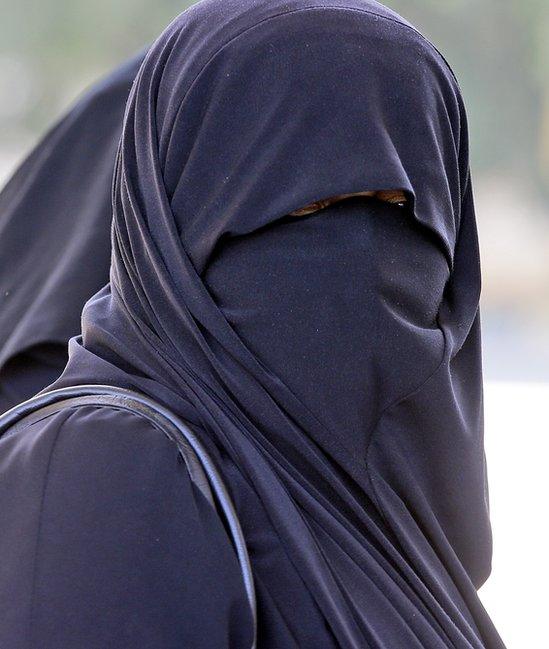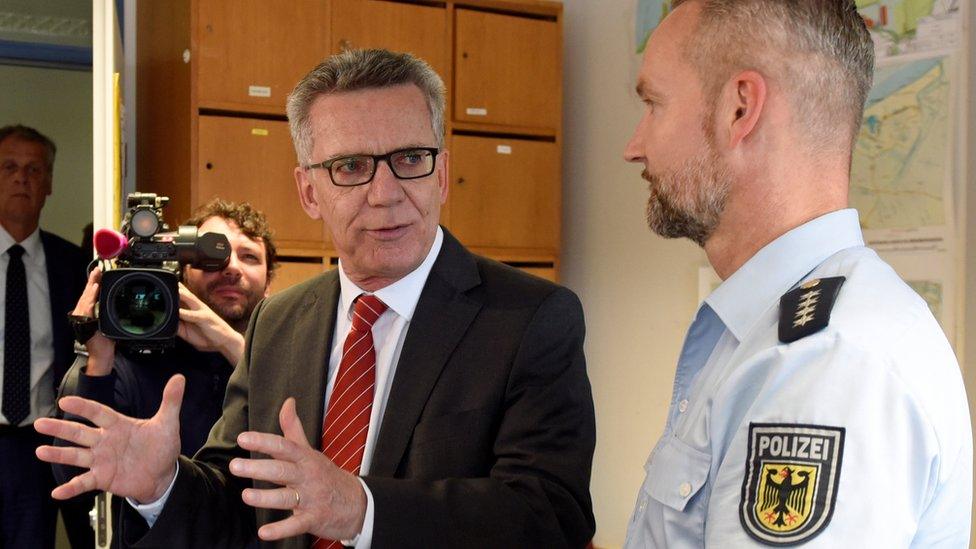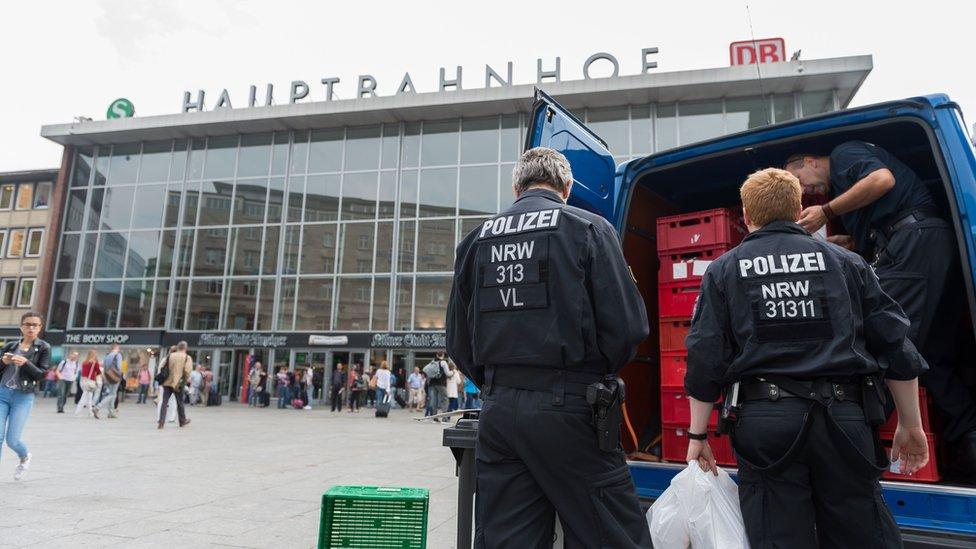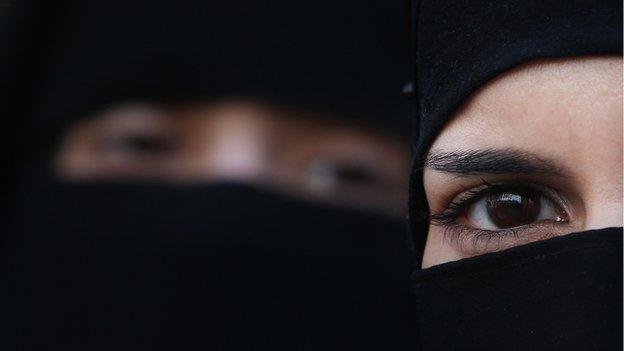Germany: Burka ban to be proposed in security clampdown
- Published

Few women in Germany actually wear the burka
Germany's interior minister will back plans to ban the burka as part of a raft of anti-terror measures, local media say.
Thomas de Maiziere also proposes deporting criminals more quickly and relaxing doctor confidentiality rules.
He is due to announce some ideas on Thursday, and back some ideas from ministers in his party next week.
There have been repeated attacks in German cities recently, some of them related to Islamist terror.
In July, an axe-wielding teenager from Afghanistan injured five people on a train in Wuerzburg before he was shot dead by police.
The same month, a failed asylum seeker from Syria killed himself and injured 15 people when he set off a bomb outside a music festival in Ansbach.
Both attacks were claimed by the so-called Islamic State group.
The Islamic veil across Europe
German press concern at spate of violence
What drives individuals to commit mass killings?
The burka is a strict Muslim veil for women that covers the full head and body. Not many people in Germany wear it.
The country has very few restrictions on people's dress. A committee of the government issued a report in 2012 saying it would be unconstitutional to ban the full burka or the niqab facial veil.
But there are some exceptions. For instance, it is illegal to cover your face in a football stadium in Germany.
Burka bans exist in other parts of Europe, notably France, Belgium and some towns in Italy.
Patient confidentiality
In Germany, doctors who breach patient confidentiality can face up to a year in prison or be forced to pay a fine.
But under Mr de Maiziere's proposed changes, they would have to inform the authorities if they became suspicious that a patient was planning to harm other people.
The proposals have drawn sharp criticism from across the political left and from doctors.
Frank Ulrich Montgomery, the head of the German Medical Association, said: "Patient confidentiality protects patients' privacy and is a basic right under the constitution.
"The tense domestic security situation must not tempt us into rash political and legal measures.''
On Thursday, Mr de Maiziere is expected to announce the plans for speeding up the deportation process, making being a "threat to public security" grounds for deporting migrants, and relaxing doctors' confidentiality obligations.
Next week, he is expected to back a series of measures being considered by a grouping of German states' interior ministers from within his own Christian Democrat party and its Bavarian sister party.

Mr de Maiziere (centre) will back proposals for more police officers to be recruited

Under the new measures, more police would be seen in and around train stations
The ministers propose:
banning the burka
stopping German people from being allowed to hold dual nationality
recruiting 15,000 more police officers by 2020
posting more police on trains and in transport hubs
making it more difficult for extremist organisations to finance mosques
deporting foreign hate preachers
German law requires non-EU citizens to give up their existing nationality when applying for German citizenship.
Mr de Maiziere says the terror threat to Germany is high. "We live in difficult times," he said on Wednesday.
Germany's Chancellor Angela Merkel, a fellow Christian Democrat, has previously said information sharing should be ramped up in the wake of the attacks on Germany this summer.
- Published20 December 2016

- Published31 May 2018
